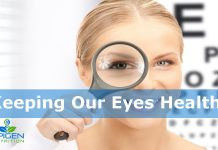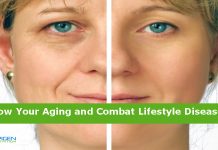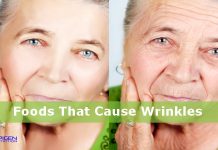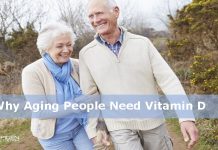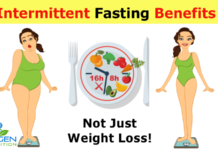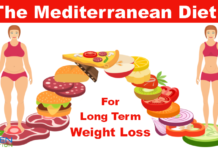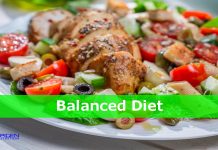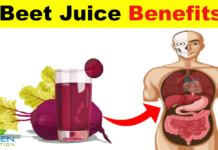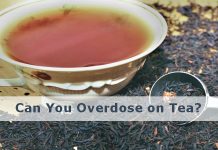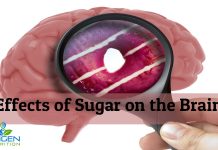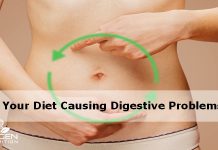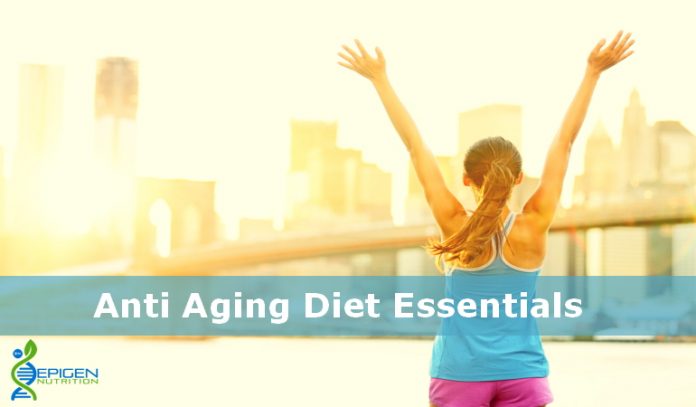Have you ever come across the sayings “what you eat and drink today, walks and talks tomorrow”, or a “minute on the lips can be a pound on the hips”?
There are some hidden messages within those old sayings to keep us aware of the effects that food and drink can have on our bodies.
If you have ever treated yourself to a guilty pleasure such as a nice bar of chocolate or a fresh cream bun, you will be aware that there are certain foods which can make you feel really good.
But, although consuming these kinds of foods and drinks can provide us with some nice short term pleasures, we find that there is a price to pay for it from the next day and beyond.
By recognizing that some of the foods that you eat are not really in the best interest of your health, you will come to realize that whatever you put on your plate at every meal is going to influence how you look as you age.
We all know about how important it is to get some form of regular exercise, but if you really want to look healthy, feel healthier and live a longer healthier life, then your diet is the most crucial thing you need to take into consideration.
Below are three important considerations to keep in mind when you are putting together your anti-aging diet plan.
Vitamin D
Research has shown that adults who have the lowest levels of vitamin D are twice as much at risk of dying from a disease compared to people who have normal or adequate levels of vitamin D within their body.
Data from scientific research also shows that getting enough vitamin D contributes to a lower risk of heart disease, obesity, high blood pressure, type 2 diabetes, depression, brain disorders and cancer.
Vitamin D is essential for improving the immune system, muscle functioning and for preventing bone health problems.
Getting sufficient sunlight exposure is the best way to trigger the production of vitamin D in your body.
If it is possible you should get your exposure early in the day, before the hours that burn.
Try to include foods in your diet that contain vitamin D such as wild salmon, egg yolks, Portobello mushrooms, oily fish and cod liver oil.
Calcium
A person’s bone density reduces at a rapid rate once they get to the age of about 50.
Women who get to this age are more prone to a bone fracture, especially after menopause when their bone mass reduces by about 3 to 5 percent every year.
More or less everybody has heard that we need calcium to build better bones, but not a lot know that it is also needed for muscle contractions and nerve functions.
Calcium is also required by your body to be able to maintain its level of acidity.
Unfortunately, the experts are telling us that simply increasing our intake of calcium will not be sufficient to offset loss of bone mass as we age.
Calcium does not pack a lot of benefits if other critical bone-forming elements are not present as well, particularly magnesium and vitamin D.
Ensuring that your vitamin and mineral levels are well balanced is a lot more beneficial than topping up with loads of calcium.
Doing that would just suppress the actions of other critical elements.
Also unless you are carrying out some form of weight bearing exercise, such as standing or walking, your body won’t put a lot of effort into bone growth, regardless of what your supplementation levels are.
Be very careful about taking too many calcium supplements because too much of this mineral in the body can increase your risk of suffering from heart disease and kidney stones.
The healthiest and safest way to get your calcium is through natural dietary sources.
Contrary to popular belief, dairy is not the only or even best way to get the calcium your body needs.
Foods that are excellent sources of calcium include dark leafy greens, oysters, sesame seeds and almonds.
Probiotics
In the constant quest for gaining optimal health, there are a number of people who overlook or in a lot of cases simply just don’t know how important probiotics are.
Probiotics play an extremely crucial role in balancing our gut health and having enough of them inside our body will help boost our immunity, skin health, lower the levels of bad cholesterol and improve digestive health.
They can also help with regulating your weight, fighting gum disease, gas, bloating and even a deep rejuvenating sleep.
Yoghurt and those sweetened little pots of drink you see advertised on the TV are not the only sources of getting your probiotics.
You can also get them from drinking kombucha tea or any other fermented tea, miso soup and kefir. Also from sauerkraut and dark chocolate and other sources that I will tell you about in other articles here on Epigen Nutrition.


